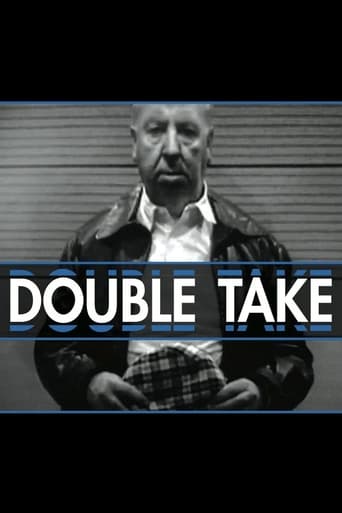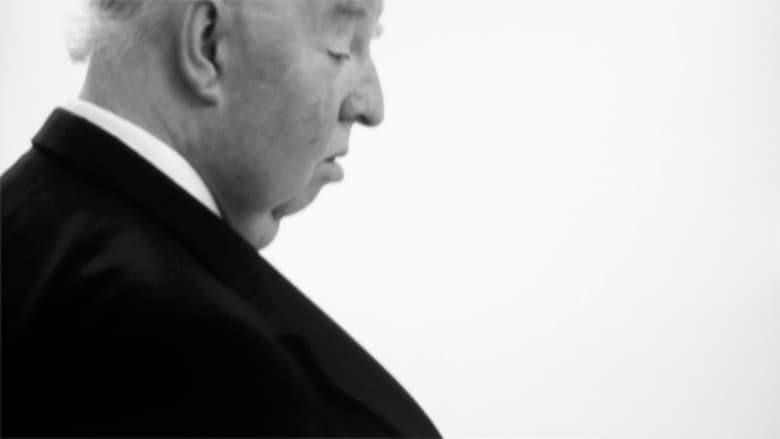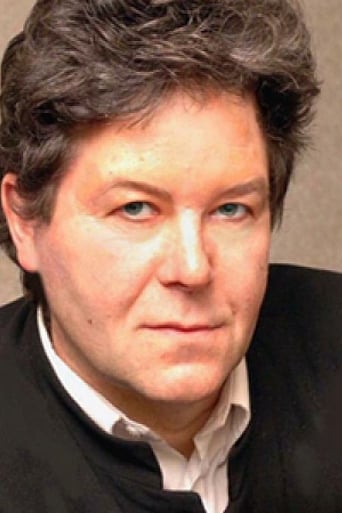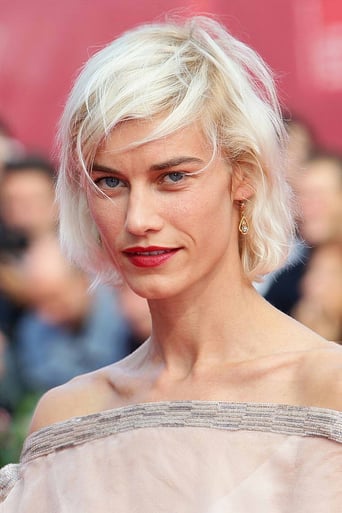
Director Johan Grimonprez casts Alfred Hitchcock as a paranoid history professor, unwittingly caught up in a double take on the cold war period. Subverting a meticulous array of TV footage and using 'The Birds' as an essential metaphor, DOUBLE TAKE traces catastrophe culture's relentless assault on the home, from moving images' inception to the present day.
Reviews
After playing with our expectations, this turns out to be a very different sort of film.
By the time the dramatic fireworks start popping off, each one feels earned.
The plot isn't so bad, but the pace of storytelling is too slow which makes people bored. Certain moments are so obvious and unnecessary for the main plot. I would've fast-forwarded those moments if it was an online streaming. The ending looks like implying a sequel, not sure if this movie will get one
Actress is magnificent and exudes a hypnotic screen presence in this affecting drama.
Since there is so much confusion about the actual subject of this film I'm going to delve into more detail than I normally do, while attempting to avoid genuine spoilers. While dopplegangers are a running theme, this film metaphorically, indirectly and DIRECTLY addresses the bitter cold war of the times between Communism and Capitalistic ideologies, and the justified fear surrounding the tension between the two--and that of their respective world powers--and how these fears were reflected in Hitchcock's films. This isn't subtle, the idea is repeated over and over, so I'm surprised that so many viewers miss it. It's not that the film really requires deep thought, but it does require paying attention and not being thrown off by the unusual presentation. The narrative, the story is there and completely coherent--especially if you know your history. I've no doubt that Hitchcock would have approved.This tension and fear (C vs.C, the ongoing tension, and threat of nuclear war) was reflected directly in MANY of Hitchcock's films--such as "The Man Who Knew too Much" and the specifically mentioned "Topaz" and less obviously in many of his other films. "The Birds" wasn't just a fear of nature turning on man (though there is that), but a subtext (or hinted at later in this film by Hitchcock himself) that the Communists would invade or attack and annihilate the innocent (the "duck and cover" scene in the school of "The Birds" was one of the most direct allusions to this paranoia). Hitchcock's doppelganger story was this film's statement to the effect that the USSR and USA were actually two sides of the same coin and destined to kill each other--as blatantly stated when the narrator asserts that when you meet your double, "one must kill the other" (and repeated every time the film shows archival footage of a U.S.president meeting with one of the Russian leaders--you can't get more obvious than that. The narrator even states this, while reading back excerpts from Hitchcock's diaries.The genius of the film is also reflected in the juxtaposition of inane TV commercials-designed to support the "American Way of Life" by subverting the public's genuine fears into worrying about competing with the Jones' next door (also financially supporting Capitalism) and substituting the terrifying and all-too realistic terror of all-out nuclear war and global annihilation--to that of pleasing one's husband with a decent cup of coffee. I for one, thoroughly enjoyed the messages of this film and how they were presented--especially the bickering between Khrushchev and Nixon.FYI: The "Falling man" of this film that some reviewers derided was a real doppelgangerto the famous "falling man" of 9/11, and also a result of the very REAL crash of a small bomber aircraft into the Empire State Building (1945) on a very foggy day (so perhaps that inclusion makes sense now?). A man named Paul Dearing--just as his doppelganger of 2011, jumped to escape the intense flames. This inclusion isn't just cinematic hyperbole or a cheap trick but consistent with the theme of the doomed dopplegangers--with the added caveat: 'Those who can not remember the past are condemned to repeat it.'
There is little need to introduce the glorious Alfred Hitchcock. He's as famous as the best of his films, and few directors would dare to question his standing. Sadly no longer with us but this homage pieces clips from his TV show introductions, films and interviews to give us a glorious and charming overview of the man.The background is the sixties arm race and this film intersperses political & presidential scenes with the clips from Hitchcock and The Birds. It all seems messy but it's actually not and works well. What you get is a charming and at times curious mock documentary paralleling Hitchcock's the Birds with the political environment of the US v USSR arms race.It's not too long and at 80mins is easy for anyone to digest. Admittedly it does tire at times but the creators of this film have made it entertaining. What stands out is the wonderful character and humour form Hitchcock and that is what you will remember at the end.It's fun, interesting and as cerebral as one of Hitchcock's movies itself. Worth a viewing.
Pre-titles, the Hitchcock impersonator Mark Perry recalls Hitchcock's 'MacGuffin', the story of no consequence which precipitates the thrills of the suspense wound around it. Double Take seems to be a fantasy of two Hitchcocks, one in 1962 releasing The Birds for the first time and one in 1980, his last year, meeting one another.Grimonprez's subject though is not this metaphysical slight of imagination. Rather it is the strangely apposite superpower leaders during the Cold War. Grimonprez has clearly seen disparate yet resonant parallels between Nixon and Kruschev, Kennedy and Kruschev - indeed, Hitchcock and Kruschev - and the relationship of all four to the prevailing media of the late 1950s, television. Once the purpose of the montage style has coalesced (the opening fifteen minutes appear wilfully aimless) I was drawn in - and not least as Hitchcock's own style often used visual montage without script or music to make its point.In addition to Grimonprez's collage there is a some really fine music from Christian Halten. I have mixed feelings about the coda of the film running concurrently with the credits, which seems to try to position the film in a broader context about the disingenuousness of powerful leaders, invoking the 2003 war in Iraq. This seems to me to dilute its focus somewhat; additionally, the conceit of adding this to the credit sequence makes it seem like an afterthought.Still, the aesthetic of mixing old and specially shot footage opened my imagination to think on other doppelganger films: Tarkovsky/Soderbergh's Solaris and Chris Nolan's masterpiece The Prestige, the latter of course fully consonant with Hitchcock's other invocation that on meeting one's double you should kill him lest he kill you. The premise of time-shifting across pan-global nuclear disaster also echoed that of Chris Marker's La Jetée, itself also an homage to Hitchcock's own Vertigo. And, of course, the global holocaust threatened by the facing down of world leaders so close in make-up despite their opposing political ideology is a remarkable scenario to see in a film released as CERN's Large Hadron Collider begins to search for the 'anti- matter' - the double of all visible matter - that many predict has the potential to annihilate the universe.The film is crucially not without wit. I'll never buy Folgers instant coffee should it still exist. You'll need to see this fascinating conflagration in order to find out exactly why. 7/10
I'll start with an apology. I am unsure that I will be able to provide a meaningful description of this film. In saying that, I'm not sure I would have known I would have enjoyed this as much as I did, regardless of anyone's opinion. Truly, this is a film that is difficult to conventionally define – that's part of why I liked it so much. The film intertwines the classic cinema Alfred Hitchock created in his long distinguished career, with the significant historical events of the same time. So...have the classic imagery of birds, shower scenes, dead bodies...interspersed by Nixon's encounter with Khrushchev, JFKs televised presidential debate and the space race. The underlying theme is about doubles, and Hitchcock's double – both lookalike and soundalike feature. The voice over is hypnotic, and the film would have never had the same impact without the vocal performance of Mark Perry. I also felt myself hypnotised by the original soundtrack music of Bernard Hermann, and Double Take is a film I would watch at least twice.
Top Streaming Movies















